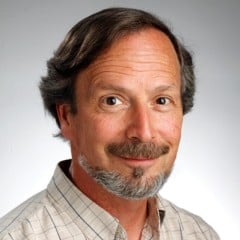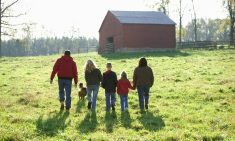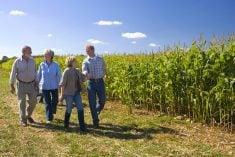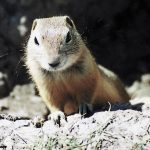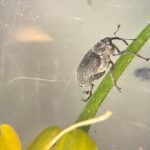Across the country, agriculture has evolved at blinding speed. Today’s farms operate on a scale and at a pace that no one could have imagined 20 years ago, not to mention the sophistication of their financial and business management, or the sheer value of the assets they must command.
It’s why all eyes are on the newest generation of farmers, fresh from college and university and full of passion and determination to succeed. We know they’re going to farm differently from their parents, but there’s incredible excitement and impatience to see how they’re actually going to do it.
Read Also

‘No agenda, no attenda’: How to professionalize your family farm meetings
Establishing meeting ground rules can help a farm family find ways to communicate that work for the business and the family.
It turns out the same thing is happening in agribusiness, where the challenges and opportunities surrounding succession are every bit as real and high stakes as they are on the farm.
In fact, there may be no place better in Canada for seeing the drama unfold than at the DuPont Pioneer regional office in Saskatoon, where a young American named Andrew Lauver has been named an emerging leader in international business for the giant ag multinational.
Only 23, there’s already a kind of mythology surrounding Lauver, and inside that mythology is a kind of composite picture of the management characteristics that DuPont Pioneer thinks will prove winners for its next generation of senior execs.
- More Country Guide: Help wanted
First to come to mind is Lauver’s Chuck Grassley story. Grassley is widely known both in the U.S. and Canada as the U.S. senator for Iowa since 1981. He had farmed part time in the 1950s, but then excelled in academics and became a genuine power broker in Washington, where he has chaired the Senate Finance Committee and is the ranking Republican on the Senate Judiciary Committee.
It all means that Grassley is the kind of overscheduled, overmeetinged politican who loves to get on an airplane because the flight gives him at least the hope of an hour or two of anonymity and peace.
Except on this day in July 2012, Lauver was on the same two-hour flight to Reagan National in D.C.
Lauver, who admits to loving to talk ag policy, was on the plane as part of an Iowa Corn Growers Association delegation. Shortly before, he had formed the first chapter of the association at Iowa State University, where he was studying agriculture on his way to a B.Sc. with distinction in 2012.
While at Iowa State he had been president of the Alpha Gamma Rho fraternity, growing its membership by another 25 per cent while also being named to the ag college’s Dean’s Strategic Planning and Budgeting Committee, among other honours.
Lauver was on this flight because the corn association wanted to take young voices with them to Washington to see decision makers including Grassley and talk about the aspirations and challenges of farm youth.
Lauver knows those challenges at first hand. He was born and raised on a corn and soybean farm near Rockwell City, a couple hours northwest of Des Moines. The farm, run by his grandfather Don Lauver and his father Kevin is 500 acres, and as with so many other mid-size farms, it would need to double in size for the next generation to take it over on a full-time basis. Yet the amount of capital that would be needed for such growth is beyond staggering.
So Lauver climbed into seat 12C, mentally rehearsing the kinds of messages he would try to spread in Washington, probably mainly talking to staffers and lower-level politicians while the big names in the corn association tackled the big names from Washington.
Except, the passenger in 12D was Grassley himself.

Nothing daunted, when Grassley nodded hello and said words to the effect of, “Where are you on your way to, son?” Lauver plowed straight ahead, engaging Grassley for the entire flight and taking full advantage of what seemed a too-good-to-miss lobbying opportunity.
It was the kind of chutzpah that needed to be played right. If too brassy, Lauver risked being obnoxious. If too quiet, he’d risk equally fatal tiresomeness.
So how did Lauver do? Well, as they landed, Grassley leaned toward Lauver and said, in words to this effect, “Say, son, why don’t you contact my office about coming on board as an intern.”
That’s just where the following January found him, in Washington on Grassley’s staff. “I’d never seen decision-making that operated at such a pace,” Lauver recalls. It was an education in bringing together all the components of an issue — each with its supporters and detractors — and weaving them into a process that everyone could respect, even if they didn’t always love the final decision.
Perhaps equally valuable for corporate life, it taught him that in large organizations, change takes commitment.
That same winter, Lauver also applied to DuPont Pioneer for its Frank Ross International Business Emerging Leader program, named for the company’s former vice-president of global commerical business. After three rounds of interviews, Lauver was named its North American winner.
To a degree, it was an unexpected turn in his career. While the family farm in Iowa is based on corn and beans, Lauver had always leaned toward animal science, focusing on beef and livestock clubs during his many years with 4-H.
Early at Iowa State, however, he checked out a career fair on campus, where he was won over by the seed sector and how it was plunging into molecular science and new traits, and how it was building for new global markets.
Lauver knows Pioneer wasn’t his only choice, so while winning the Ross internship means that he has the personal qualities that DuPont Pioneer is looking for to build its own future, the vice versa is true too.
Lauver remains convinced he chose right — a view that is only reinforced by his posting to Saskatoon — and like young farmers who talk of farming these days as being at the beginning of a brand new era of better returns, new markets, and extraordinary opportunities, Lauver talks of seed as at a thrilling point for starting a new career.
In fact, it’s of farmers that Lauver talks first. During the first leg of his Ross internship, he worked from the company’s Johnston, Iowa headquarters, assigned to conduct one-on-one interviews with some of the biggest American farms as part of the company’s decision to expand its “strategic account manager” approach to these customers.
Large or small, today’s farmers are different, Ross now believes. They see management as their core competency, and their mantras are all about working smart, instead of the older self-reliance, running lean or simply working hard.
“We have to supply value that advances their farms,” Lauver says of the seed sector.
Still, it’s one thing to say that a seed company needs to deliver value, not only in its genetics but in the entire relationship it has with a farmer. It’s something else to figure out what that value is, and how your company can use it to differentiate itself in the grower’s mind.
For Lauver, who is also enrolled in a master’s of agribusiness program at Kansas State University, it’s a case study come to life in the most real of ways.
Lauver also sees the seed sector as home to cutting-edge business thinking about collaborations, as well as to research programs that can go far beyond what previous breeders could do, and that can be expected to soon sail past the limits faced by current programs.
Related to this, Lauver is using his spare time to learn conversational Portuguese at the University of Saskatchewan. It isn’t necessarily that he expects to be posted to Brazil some day, he says, but that as a millennial entering business, he knows he needs to not only adapt to, but thrive in a world where enjoying other cultures is a big part of life.
He is also intrigued by communications and electronic technologies, and one of his jobs in Saskatoon is to help devise the company’s first five-year North American e-plan, not just to keep farmers in touch, but to enhance and sharpen farm decision-making. Such needs, it’s clear, call for world-class solutions, not just solutions that are good enough for the farm.
Still, such factors don’t totally explain the excitement of Saskatoon in 2014.
That, says Lauver, is corn and soybeans. “We’re going to see these high-yield crops become part of the western rotation,” he says. If you look at it in terms of how the world feeds and fuels itself, he continues, “this is a big deal.”
None of it will be easy, but for a young agbiz student at the beginning of his career, it’s about as close to breath-taking as things get.

